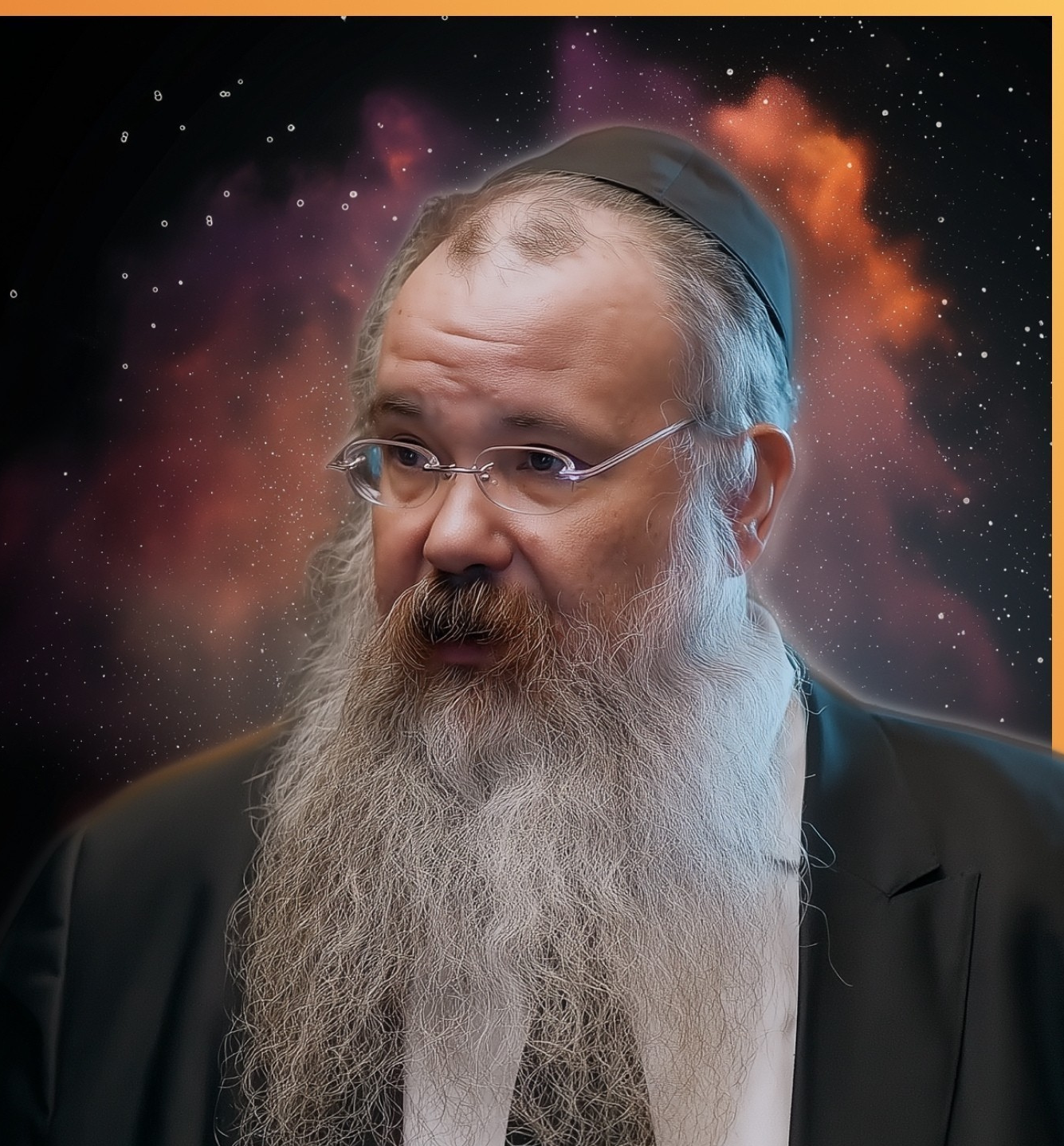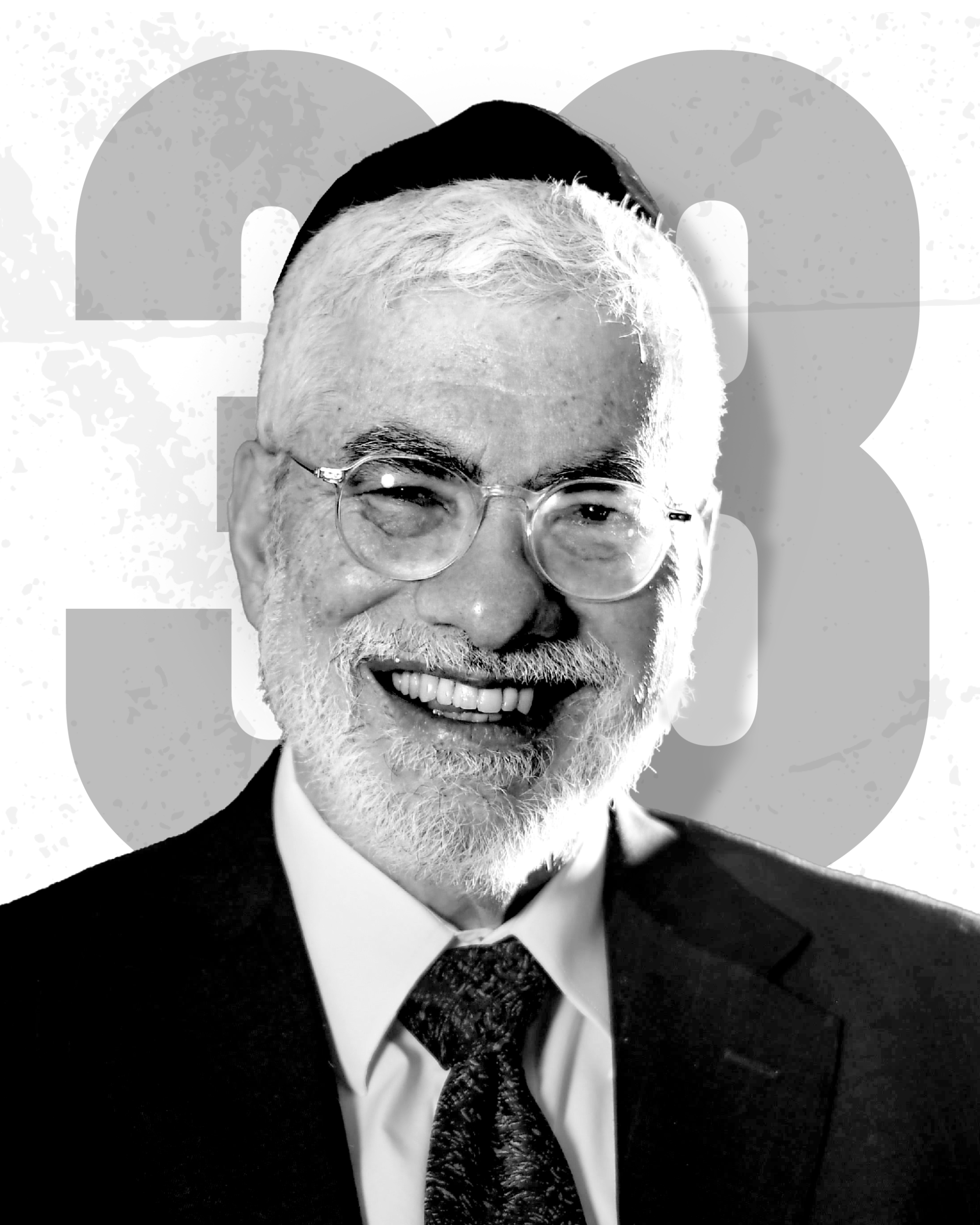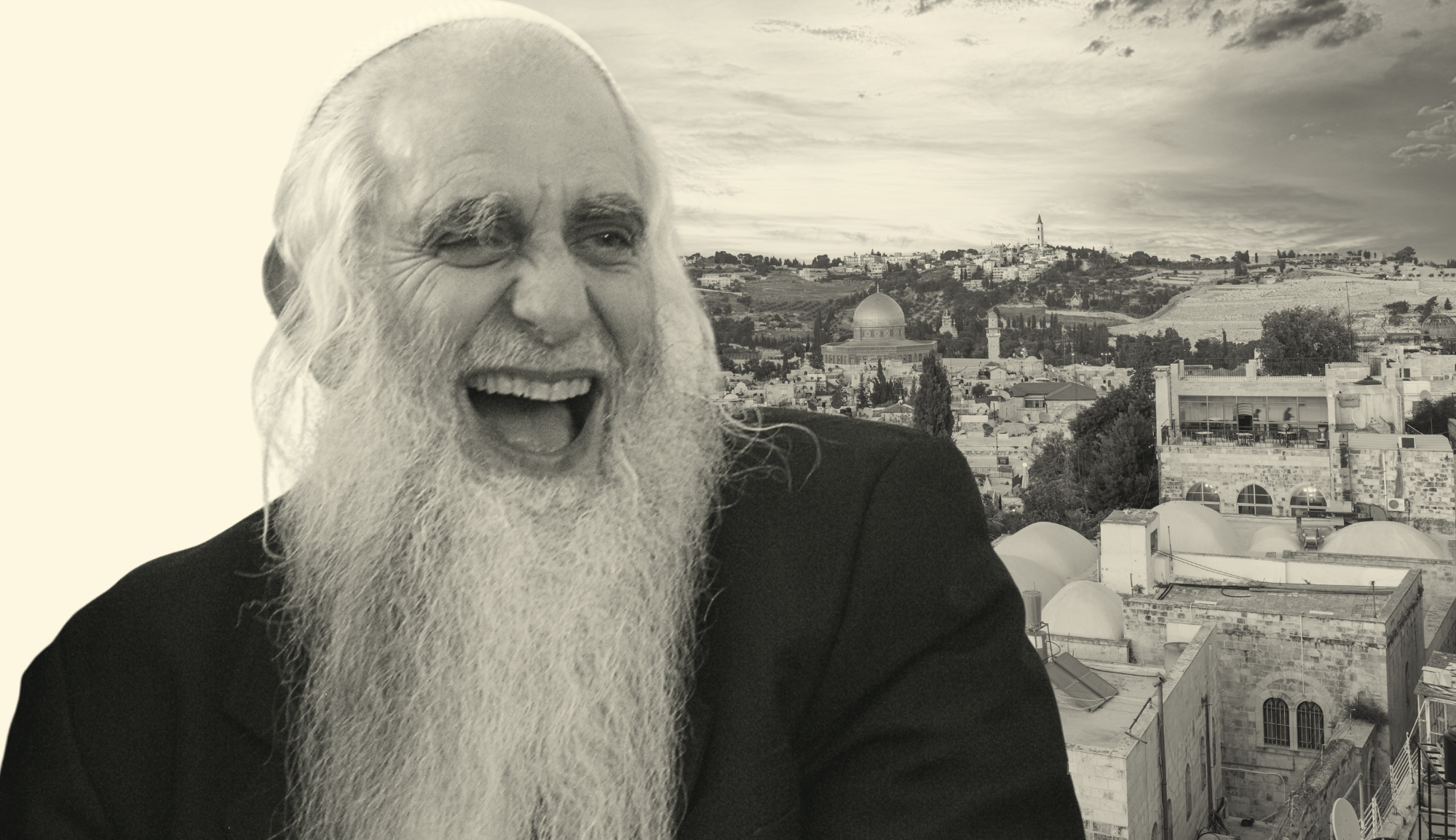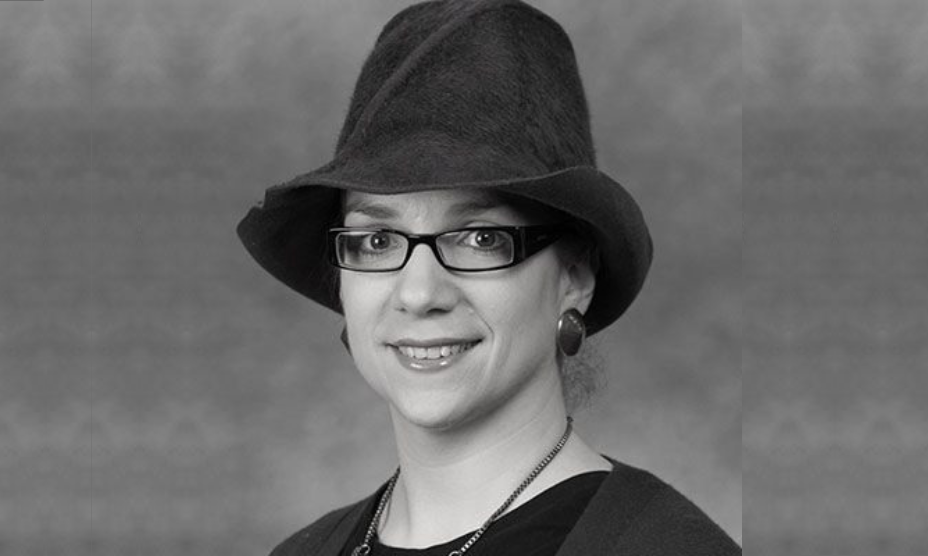Anita Shapira: ‘You cannot wipe out Hamas’
Leading Israel historian Anita Shapira answers 18 questions on Israel, including destroying Hamas, the crisis up North, and Israel’s future.
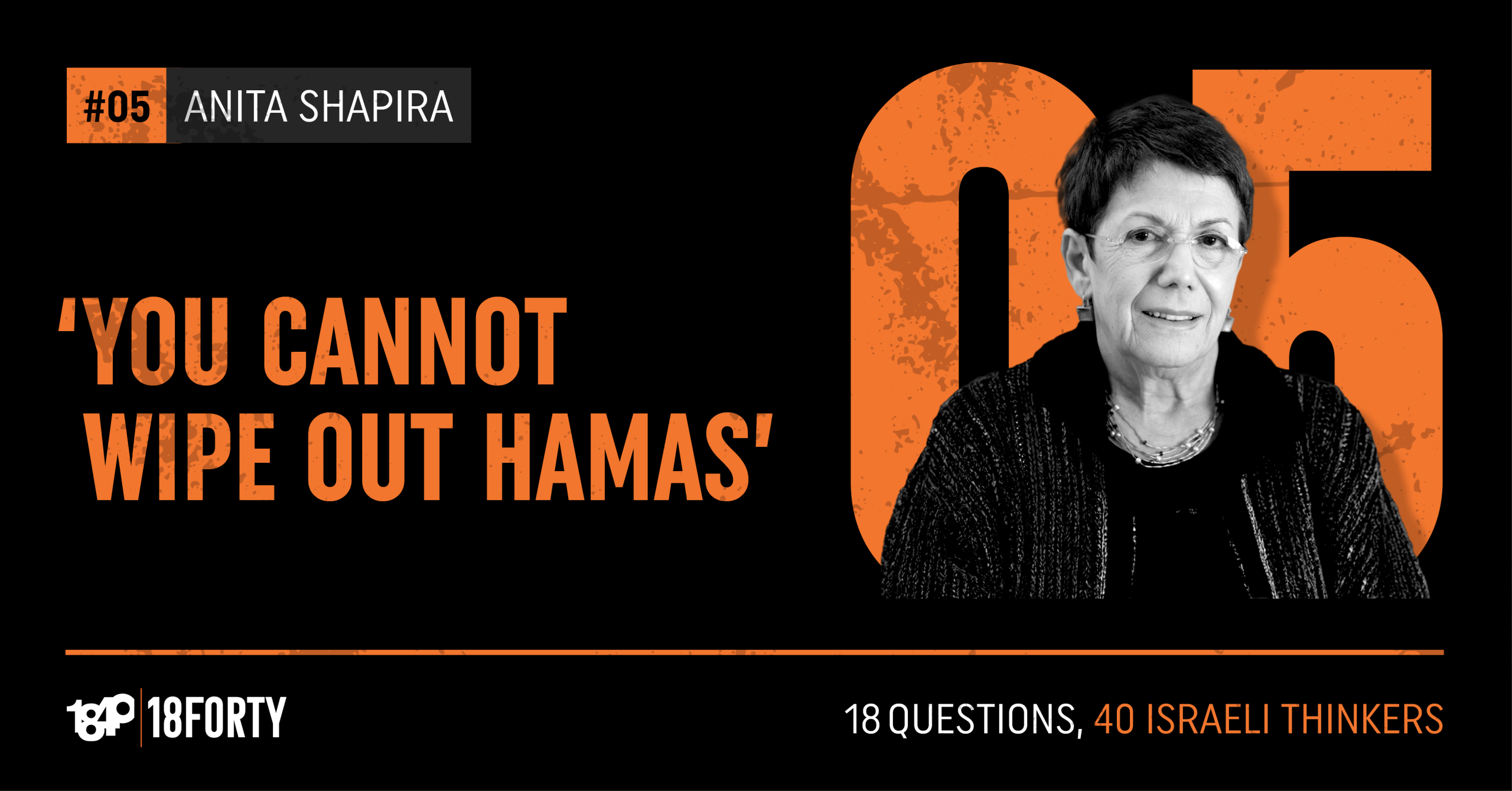
Summary
After Auschwitz, Anita Shapira says, Jews understood the necessity of power—and the necessity of statehood.
A leading Israeli historian and author, she is professor emerita of Jewish History at Tel Aviv University and founder of the Yitzhak Rabin Center. When Anita Shapira speaks, her words are informed by acute expertise of Israeli and Jewish history—as evidenced by her many accolades and awards, including the Israel Prize for research on Jewish history in 2008.
Having published groundbreaking studies on the history of Zionism, Jewish-Arab relations, and the state of Israel, Anita Shapira is a vital voice for all things Israel—past, present, and future.
Now, she sits down with us to answer 18 questions on Israel, including wiping out Hamas, Israel’s catastrophe up North, her sense of Israel’s future, and so much more.
This interview was held on June 19.
Here are our 18 questions:
- As an Israeli, and as a Jew, how are you feeling at this moment in Israeli history?
- What has been Israel’s greatest success and greatest mistake in its war against Hamas?
- How do you think Hamas views the outcome and aftermath of October 7—was it a success, in their eyes?
- What do you look for in deciding which Knesset party to vote for?
- Which is more important for Israel: Judaism or democracy?
- Is there anything miraculous about Israeli history?
- Now that Israel already exists, what is the purpose of Zionism?
- Is opposing Zionism inherently antisemitic?
- Is the IDF the world’s most moral army?
- If you were making the case for Israel, where would you begin?
- Can questioning the actions of Israel’s government and army — such as in the context of this war — be a valid form of love and patriotism?
- What do you think is the most legitimate criticism leveled against Israel today?
- Do you think peace between Israelis and Palestinians will happen within your lifetime?
- Are there parts of Israeli-Palestinian history that it is unhelpful to discuss?
- What should happen with Gaza after the war?
- What is something you were wrong about in your historical views?
- Where do you identify on Israel’s political and religious spectrum, and do you have friends on the “other side”?
- Do you have more hope or fear for Israel and the Jewish People?
Transcripts are lightly edited. Please excuse any imperfections.
Anita Shapira:
The Hamas is a terrorist organization, it is not a state. And the fact that the people of Gaza chose it by elections only makes it more difficult because it means that the people of Gaza like what they get. Hi, I am Anita Shapira, an Israeli historian from Tel Aviv University, and this is 18 Questions, 40 Israeli Thinkers from 18Forty.
Sruli Fruchter:
From 18Forty, this is 18 Questions, 40 Israeli Thinkers, and I’m your host Sruli Fruchter. 18 Questions, 40 Israeli Thinkers is a new podcast that interviews Israel’s leading voices to explore those critical questions people are having today on Zionism, the Israel-Hamas war, democracy, morality, Judaism, peace, Israel’s future, and so much more. Every week we introduce you to fresh perspectives and challenging ideas about Israel from across the political spectrum that you won’t find anywhere else. So if you’re the kind of person who wants to learn, understand, and dive deeper into Israel, then join us on our journey as we pose 18 pressing questions to the 40 Israeli journalists, scholars and religious thinkers you need to hear from today. Anita Shapira is a leading Israeli historian. I think of she and Benny Morris or her and Benny Morris, whatever way the grammar goes, as academics in that elite fundamental class of historians who shaped how we understand Israeli history today.
For those of you who heard our interview with Benny Morris, which was the first of 18 Questions, 40 Israeli Thinkers, great. If you haven’t heard it, I highly recommend you go listen to it. But in that intro, I described Benny Morris as part of this class of New Historians that is the group of historians who rose up in the ’80s and were challenging the traditional or established narrative about Zionism, but Israel’s founding and were questioning a lot more based on new unlocked documents from the government. And there’s a really, really fascinating history about the historians and their study of history at that time. The reason I mention that is because Anita Shapira was to many placed in the other category of “old historians,” that is those who upheld the more classic notion of Israel’s founding, of Zionism and so on. And if I’m being a little bit too ambiguous, I’ll just be super blunt about it, the new historians had a more leftist revisionist view of Israeli history questioning, was Israel born in sin?
What happened in 1948? What’s the real story of how Zionism developed and how the state has developed over the last few decades? Because again, this is taking place in the ’80s. And the old historians were those who set that first narrative, who set that first narrative about Zionism, about Israeli history, about Israel’s wars. And so when the new historians were rising up and were gaining popularity and were getting more notoriety, the old historians had their own set of critiques against their methodology, against the hostile views that they held towards Israel most of the time. But all of that is details for another time. That is just some relevant, interesting context. My interview with Anita Shapira, I say this a lot, but I really mean it, it really was one of my favorite interviews because she’s not a historian who’s locked away in her ivory tower, and I don’t think that most Israelis are because for them their subject is their life.
It’s not as if they’re in a super large country and you can study things abstractly and it doesn’t actually affect your personal life. All of the academics, all the people who are involved in studying Israel in whatever degree that is, they are part of what they study. And I really got that sense of her during our interview that she is so deeply connected and affected by what’s happening in Israel. And it’s not just, again, some abstract historical subject for her. She’s Professor Emerita of Jewish History at Tel Aviv University and founder of the Yitzhak Rabin Center which focuses on Yitzhak Rabin’s legacy as a leader, which definitely comes with its controversies depending on where someone sat and felt towards his initiatives with peace between Israelis and the Palestinians. The center also focuses on having a commitment to Israeli society and to unifying the Jewish people, which to them is especially relevant given the fact that Yitzhak Rabin’s death came about from an assassination by an Israeli.
Anita Shapira’s specialties are the history of Zionism, of Jewish-Arab relations and of the State of Israel in general. She received the Israel Prize in 2008 for research on Jewish history, which is just one of the many accolades and awards and recognitions that she has gotten over the course of her lifetime and career. One of the things that I actually forgot until after the interview, and we were just schmoozing afterward, which that really should be recorded because that post-interview schmooze is just golden, is that she leads the Yale Jewish Lives series, which is excellent and I absolutely love it. For those who are unfamiliar, Yale University Press has a series called the Jewish Lives, which collects some of the leading experts in different Jewish figures, religious, political, Israeli, non-Israeli, spanning a wide variety. We’re talking Moshe Rabbeinu, we’re talking Rambam, we’re talking Freud, we’re talking Rav Kook, we’re talking Ben-Gurion, we’re talking Golda Meir, very, very diverse. And they’ll always get someone who is an expert or in some interesting way has a connection to the subject to write that biography or that memoir, whatever the proper term is.
So if you haven’t heard of it, definitely check that out. But overall, as with so many of the guests who we have on this podcast, just hearing their bio does really not get to the heart of who the person is. I’ll reiterate, when I was sitting with Anita Shapira and listening to her answer these questions, which initially, again, I’m coming in here and I’m interested to hear her thoughts, her understanding, and to really encounter someone who wasn’t just speaking from a historian, divorced, observing our conversation, but someone whose deep emotional connections were rooted in our discussions in our subject. What specifically comes to mind and you’ll hear about this in the interview, and I actually asked a follow-up question to try and learn more about it, was when she was talking about her sorrow in the evacuees from the north since October 7th when Hezbollah became a more active threat for Israel and the Israeli government decided that it was not safe for Israeli citizens to live in that area.
Overall, the interview like so many that we have done is really, really wonderful and I absolutely loved it, and I hope you enjoy it too. And as always, before we go to the interview, if you have questions you want us to ask or guests that you want us to feature, shoot us an email at info@18forty.org. And if you like this episode or our other episodes, be sure to subscribe and share with others so that we can reach new listeners. And if you have thoughts, feedback, comment, literature for us, please shoot us an email at that same email. And the same goes if you’re interested in sponsoring and supporting our work. But without further ado, here is 18 questions with Anita Shapira. As an Israeli and as a Jew, how are you feeling at this moment in Israeli history?
Anita Shapira:
I’m trying not to feel desperate, but I feel that this is the most difficult moment in Israeli history since the establishment of the State. I think the last 70 years were maybe the most happy years of the Jewish people ever. And now it looks bad.
Sruli Fruchter:
Can you say a little bit more about that?
Anita Shapira:
We feel that we are in war after an attack, a vicious attack, and we are governed by a government that doesn’t understand what it should do or it doesn’t want to do what it should do, and it’s driving the people to desperation.
Sruli Fruchter:
What has been Israel’s greatest success and greatest mistake in its war against Hamas?
Anita Shapira:
Israel fought the Hamas along the last 20 years or so. I think the government, the prime minister, thought that he could keep quiet the Hamas by paying it through Qatar a lot of money. This was a wrong assumption. The Hamas is a terrorist organization, it is not a state. And the fact that the people of Gaza chose it by elections only makes it more difficult because it means that the people of Gaza like what they get. Now the fact that we were not prepared for October 7th is due to the fact that there was this wrong conception that we can make Hamas more accepting the existence of Israel while they were determined to abolish Israel.
Sruli Fruchter:
And just to follow up on that question, what would you say Israel’s greatest success has been in this current war?
Anita Shapira:
There was a time that we thought that the Six-Day War was Israel’s greatest success. Today, I think that the Six-Day War was something that led us to the present disaster. And maybe Yom Kippur War that we always thought that, it was a very difficult war, but it was a war that we fought and succeeded and it brought in its wake the establishment of peace between Israel and Egypt and which later on led to the peace with Jordan and it started a process of normalization between Israel and Arab states, and this is something that we should achieve. And the Six-Day War that we treated as the greatest victory ever actually with the occupation of the West Bank, caused us terrible growth of a messianic movement in Israel that is leading us to a disaster.
Sruli Fruchter:
To clarify my question a little bit, in the current war right now, what would you say has been Israel’s greatest success?
Anita Shapira:
I don’t see successes so far. I would see a success when Israel reaches some kind of settlement with the Hamas and when we get back the abducted, and this would be the greatest success. You cannot wipe out the Hamas. The Hamas is an idea, it’s an ideology, but we can make the settlements on the border more safe and we can get back our citizens that were abducted by Hamas.
Sruli Fruchter:
How do you think Hamas views the outcome and aftermath of October 7th? Was it a success in their eyes?
Anita Shapira:
Of course, an enormous success, more than they expected and even more than it should have happened. But in their view, less would be better because they brought a disaster on Gaza Strip and maybe they did not intend to do that. And had they been less successful, we wouldn’t have done so much destruction in the Gaza Strip as a result of their immense success from their point of view.
Sruli Fruchter:
What do you look for in deciding which Knesset party to vote for?
Anita Shapira:
I don’t want to decide right now, but I will vote definitely to the left of the Likud, and I think I won’t vote for an extreme party.
Sruli Fruchter:
What type of things do you consider when you’re making that decision?
Anita Shapira:
I want a government that is directed by rational considerations. By pragmatic considerations. I don’t want a government led by ideology. I want a government that its direction is pragmatism, and so far it is not part of the Likud.
Sruli Fruchter:
Which is more important for Israel, Judaism or democracy?
Anita Shapira:
Why should we point differentiation between the two? According to some interpretation of Judaism, Judaism is also supportive of democracy. So I would not present both as one against the other. I would try to find the middle road that was always part of Israeli policy and part of Zionism from the very beginning. From the very beginning of Zionism, there was a party of Religious Zionism within the Zionist movement, and it was okay, it was part of our life. Today what we see is a growing aggressiveness on the part of messianic Judaism and they believe that they can rule the country and they can rule the non-Jews. And I think that this goes against the grain of Judaism as we understood it all the time. And in my view, it’s a tragedy.
Sruli Fruchter:
Is there anything miraculous about Israeli history?
Anita Shapira:
Of course, the very existence of the state of Israel is a miracle. And I discussed the matter with this scholar in the United States and he said, Israel is so special that it cannot perish. Well, I hope he is right.
Sruli Fruchter:
What do you mean by that?
Anita Shapira:
What do I mean by that? Today we are facing an existential struggle and we are facing it while we are divided. While we are incapable of taking rational decisions because of a minority that is governing the prime minister. And as a result of that, we cannot make the decision to finish the war in Gaza. We cannot make the decision to get back the abducted Jews. We cannot get the dead Jews. And the result is that we cannot finish the war in Gaza and we cannot take care of other borders. I never faced a situation in which the government of Israel decided to evacuate a whole area of Israel.
And this government because of panic, because of not knowing what to do, evacuated the north, which never happened before. And we had attacks, we had infiltrations, we had people killed, but we never had this anti-moral decision to evacuate an area, a whole area and to keep the people everywhere but not in their homes. And the result was that the Hezbollah feels entitled to bomb and destroy settlements that was settled more than a hundred years ago at the beginning and before the beginning of the 20th century. This is unbelievable. This is something that never happened before and we are facing many dangers and we don’t have the kind of government that we should have in such a time, a unity government that the best people rule the country and at least the best people outside the government to help them. Right now we don’t do that.
Sruli Fruchter:
This isn’t one of our questions, but I see that as you’re talking, it’s a very emotional point for you. I’m curious as an Israeli Jew and as an Israeli historian, what it’s been like for you in a personal sense with knowing that Israel has people in the north who are evacuated and that Israel’s in its current state.
Anita Shapira:
I was amazed. I was really amazed. The Syrians attacked and bombed the settlements in the north and in the Jordan Valley and children studied in underground shelters. So okay, this was part of our life, but this government projected panic, projected fear, did not project stand fast. And this is something that we never had before.
Sruli Fruchter:
Now that Israel already exists, what’s the purpose of Zionism?
Anita Shapira:
First of all, as you can see, the existence of Israel is not secure yet. And Zionism is the connection between the State of Israel and the Jewish People worldwide. Zionism today is the national movement of the Jewish People in Israel and outside Israel. It’s not exactly the same as Israeli citizens because there are among Israeli citizens, those who are not Zionists, and there are Jews outside Israel that are not Zionists. Zionism is an ideology that is still in force. First of all, it is the claim that the Jews return to history and that they are acting in the real world and are not expecting a messiah that would come and save them. And this is still intact and it’s still not universal, the right of the Jews to have a state of their own and the fact that they returned to rational history.
Sruli Fruchter:
Is opposing Zionism inherently antisemitic?
Anita Shapira:
No, you can oppose Zionism while being pro-Jewish, or at least not anti-Jewish. But right now what we see in Europe, what we see in the United States is a conversion of both anti-Zionism and antisemitism. People don’t differentiate between Jews that are not Zionists and Jews who are Zionists. They don’t want Jews. That’s it. And as a result of that, this conversion between Zionism and Judaism became more and more strong. For instance, in France, many Jews are not Zionists and they are attacked on the pretense that they are Zionists, but they are attacked because they’re Jewish.
Sruli Fruchter:
Is the IDF the world’s most moral army?
Anita Shapira:
An army is never moral. There is a contradiction in terms between army that intends to kill the other side and morality. You can say that the Israeli army is attempting to be as moral as it can be, but these days I think less than it was in the past. Even though I think there is idealization of the past, I think an army cannot be moral. An army is a war machine. And a war machine, even with the best intentions raises the basic instincts of humanity and they’re not very moral.
Sruli Fruchter:
If you were going to make the case for Israel, where would you begin?
Anita Shapira:
I would begin with the right of the Jews, like any other people to have a state of their own. And this is what I always claim, the Jews are the only people in the world that while they have a national movement, definitely a strong one, people are denying their right to statehood. And I think that in this matter, anti-Zionism and antisemitism converge because what does it mean that the Jews are not entitled to a state? It means that you are relating to the Jews in a different way than you relate to many other people that had no history, had no religion of their own, had no culture of their own, and they have a state. So Jews are entitled like any other people to a state of their own. And those who deny this right are antisemites.
Sruli Fruchter:
Can questioning the actions of Israel’s governments and army even in the context of the current war, be a valid form of love and patriotism?
Anita Shapira:
I don’t like the mixing of our evaluation of the army and our evaluation of the government. The government is a political machine that has interest that not necessarily coincide with Israel’s interests. While the army, as far as I understand its acting, is definitely patriotic and directed by people that the good of the country is in front of them.
Sruli Fruchter:
What do you think is the most legitimate criticism leveled against Israel today?
Anita Shapira:
I have a problem with criticism against Israel these days because the whole war in Gaza is the result of us being attacked brutally by the Hamas. So when you are attacked and you have to respond, you cannot act according to a moral quid pro quo. Yes, we killed more than they killed, but I don’t see how we could manage the war without at least trying to obliterate the Hamas. We want the people who were living in the what we call Otef Aza.
Yes, we want them to go back to live in their homes. And this cannot be done unless we succeed in repelling the Hamas. And what can you do if a war is being conducted with a state that is above ground, beneath ground, tunnels? What can you do? What can you do about it? It is immoral by definition to fight civilians. But if these civilians hide and protect the Hamas, I don’t see how we can fight them in a more moral way.
Sruli Fruchter:
Do you think peace between Israelis and Palestinians will happen within your lifetime?
Anita Shapira:
I am too old for that. I hope it will happen within the lifetime of my grandchildren.
Sruli Fruchter:
Do you think it will?
Anita Shapira:
Eventually it will, it must happen because these are two people that fight for the same piece of land and we have to find a way to live together. It is not written in the stars that there must be always a war between Israelis and Palestinians. I think they also wish to have a quiet life. And most of the people in the West Bank indeed wish to have a peaceful arrangement. What can I say? I believe in the depths of my heart that this is possible. I don’t know how to do that. That’s why I am not in politics. But I am sure that it’ll eventually happen, not in my lifetime. I don’t even know if in the lifetime of my children, but I definitely believe that it’ll happen in the lifetime of my grandchildren. Look, there was hundreds of years of war between France and England, hundreds of years of war between France and Germany, and eventually they came to live in peace. So why should not we believe that this is also possible in this small and torn country?
Sruli Fruchter:
Are there parts of Israeli-Palestinian history that it is unhelpful to discuss?
Anita Shapira:
What do you mean by that?
Sruli Fruchter:
Are there parts of history, Israeli and Palestinian history that it’s unhelpful for people to discuss today? It’s not useful?
Anita Shapira:
Look, I think that during the period until 1970, Israelis tried to lower the flames of animosity between Jews and Arabs. And there was a policy not to talk about massacres on one hand, on the Jewish side and on the Arab side. Education tried to lead to peace. This is not what is being done today. And I think that today there is a inclination to raise the flames of hatred on both sides. I believe that this could be changed, and it depends on governments, it depends on the will of people. We forget how happy we were at the time of the Oslo agreements, how we believe that this is the most important thing that’s happening. One of the leaders that was not involved in the negotiation told me, these are the most important days since 1948.
And it did not work out, part of it because they did not reach an agreement with Arafat. And Arafat decided that it’s time to go again to aggression. But there could have been a different kind of decision. There could have been a decision to take the opportunity to reach peace. And since then, every time that we have a prime minister that shows signs of moderation, of a willingness to come to some sort of agreement, God is against it because one prime minister dies, the other goes to jail for-
Sruli Fruchter:
Fraud.
Anita Shapira:
Yes. So it did not work out, but it means that potentially there could come a moment in which on both sides there is the will to peace. And it’s very tragic to say that, but usually peace comes after a great disaster on both sides. People are not rational creatures. They don’t reach great decisions because they understand the importance of them. They reach great decisions because they have no other way. And this is true about the Palestinians and about us unfortunately.
Sruli Fruchter:
What should happen with Gaza and the Palestinian-Israeli conflict after the war?
Anita Shapira:
I don’t know. I hear the ideas of having the Palestinian authority and other moderate Arab countries rule the Gaza Strip and contain Hamas. I don’t know. I hope it can work. I don’t believe in Jewish settlement there. I think this is a catastrophe. The whole idea is catastrophe. I want to remind us Ben-Gurion’s law in ’49, that we have enough territory, we need more Jews. And this is the main thing. So we have enough Jews today and we have enough territory. So why should we demand more territory? Is this what’s going to make us a better country? Of course not. This would only raise hatred.
Sruli Fruchter:
What’s something that you were wrong about in your views of history?
Anita Shapira:
I never believed that Israeli democracy is in danger. And what happened in the last few years is that democracy was put in danger, in jeopardy. I believed that our country and our leadership are rational people, patriotic people. And today my belief was shattered. We are run by a government that doesn’t care about the good of the people. And this is for me, terrible. I don’t know if you know, I was born in the Warsaw ghetto and I came with my adopting parents to Palestine in ’47. For us, the establishment of the states was a great miracle, really a miracle. And this was raising from the ashes. And today, I don’t know where we are going. I really don’t know where we are going. And this is a great disappointment because I thought that this state is too precious to play with its future.
Sruli Fruchter:
Where do you identify on Israel’s political and religious spectrum? And do you have friends on the “other side”?
Anita Shapira:
Well, I am part of the secular sector. I have friends on the other side, but not people that are extremists, not messianists. I am friends with religious people that believe in democracy, that believe in equality and don’t believe in building the Temple, et cetera, et cetera.
Sruli Fruchter:
What’s a book you think everyone needs to read about Israel?
Anita Shapira:
Well, I wrote a few books.
Sruli Fruchter:
I was just thinking about it.
Anita Shapira:
My general book is called Israel: A History, and this is a book that is quite popular among college students, et cetera. But I wrote also other books. I wrote a book called Land and Power, in which I related to the question that how come Jews who were a peaceful people that did not use force, how come that we have today an army, et cetera, et cetera. And the answer was that Jews understood that in order to survive in the modern world, they need to have a state of their own. The aggression that we saw after we have the power was something that surprised the Jews themselves. And I remind that I always mentioned the famous story of the HaKuzari, that the rabbi or the Jewish wise men talked with the king of the Kuzarim and told him the Jews are very moral people. They don’t shed blood, they are honest, et cetera, et cetera.
And it’s especially they are not aggressive. And the Kuzari answered, this you are because you are like that because you are weak. When you become strong, you won’t be different from other people. And I always remember this little story that was written in the 12th century, and I think that apparently in order to be a sovereign state, you have to use power and you have to take decisions that are not always moral. Jews in the diaspora without power did not have to take this kind of decisions. But then it ended with Auschwitz. And after Auschwitz we had no alternative but to be capable of using power.
Sruli Fruchter:
That’s actually a very interesting point. Can you talk a little bit more about that, the need for power at times that sometimes may be difficult for our moral sensibilities?
Anita Shapira:
Yes. When did we start the idea of using power? Actually in the 1880s when there were a wave of pogroms in the south of Russia but today’s Ukraine. After a century of progress in Europe, of Jews getting emancipation, of Jews getting equal rights, not in Russia, but in Central Europe, in Western Europe. And it seemed that persecution of Jews was something of the past and then came these pogroms and the appearance of modern racial antisemitism. And this was the reason for the appearance of Zionism, not something else. The feeling that if you read the diaries of Herzl, you have it there that they won’t let us live and we need a state of our own because we have no alternative, we won’t survive. And as a result, a state, as I said in that book, land means that you need power because any land on the globe is settled this way or that way. And in order to have a land of your own, you need to have power.
Sruli Fruchter:
And for our last question to close us off, do you have more hope or fear for Israel and the Jewish people?
Anita Shapira:
This is a difficult question. I have hope. I have grandchildren and I have fear. This is the basic Jewish situation in the last 2000 years or more. People always hope for the best and fear of the worst. And somehow the history shows that both sides are right, especially the history of the last 200 years. And I don’t think it will change. Today you see a new growth of antisemitism, even though we have a state and it’s powerful, it still is in danger and the Jewish people are in danger. On the other hand, we do hope that this is a temporal period, and this would pass in time. To tell you that I’m sure that the Jewish people would survive forever after, no, I’m not sure.
We call ourselves the People of Eternity, Am HaNetzach. There were periods during which the Jews were a small minority in Europe and in the Arab countries. Even today we did not, I think, repair the numbers that we lost in the Second World War. So let’s hope that we pass the present tragedy, the present crisis, and that those who wish to eliminate us would fail and Jewish history would go on.
Sruli Fruchter:
Beautiful. Thank you so much. This was really wonderful. I’m curious, how was this for you? What did you think?
Anita Shapira:
I think it was, it was me.
Sruli Fruchter:
Anita Shapira is just such a wonderful person. I knew her name before I interviewed her. And when we had started the series and we were picking our guests, she was one of the people who I decided we need to have her on, and I’m going to make sure that we interview her. I went out to Tel Aviv to her apartment for the interview and it was lovely. I know I’m using the same adjectives, but it was just so wonderful. She’s an incredible person. I highly recommend people who want to learn more about her work or serious studies of Jewish history, of Israeli history, to look up her work, specifically her book, Israel: A History. Which trivia question, this was mentioned in which episode of 18Forty? 1, 2, 3. Okay, the answer is our episode with Noam Weissman for our Zionism series. It’s a lovely book with a deep analysis that as the title promises, is giving you a history of Israel.
She’s a scholar in so many degrees, in so many areas, definitely take advantage. And on that note, thank you so much for joining us for another episode of 18 Questions, 40 Israeli Thinkers. If you liked this episode, please leave a review and share with a friend so that we can reach new listeners and expand our conversations and explorations of Israel. And as I said before, if you have questions you want us to ask or guests that you want us to feature, shoot us an email at info@18forty.org. People have already been giving suggestions, some of which are going to be in our upcoming series. So we do read our emails, we will respond and we will take them into consideration if they are not already on our list. And for all things Jewish ideas, visit us at 18Forty.org. That’s 1-8-F-O-R-T-Y.org, where you can find podcasts, essays, book recommendations, and more. So until next time, thank you for joining us.
Recommended Podcasts
podcast
Elisheva Carlebach & Debra Kaplan: The Unknown History of Women in Jewish Life
We speak with Professors Elisheva Carlebach and Debra Kaplan about women’s religious, social, and communal roles in early modern Jewish life.
podcast
Haviv Rettig Gur: ‘Hamas is upset the death toll in Gaza isn’t higher’
Haviv answers 18 questions on Israel.
podcast
Menachem Penner & Gedalia Robinson: A Child’s Orientation
In this episode of the 18Forty Podcast, we talk to Rabbi Menachem Penner—dean of RIETS at Yeshiva University—and his son Gedalia—a musician, cantor-in-training, and member of the LGBTQ community—about their experience in reconciling their family’s religious tradition with Gedalia’s sexual orientation.
podcast
Chava Green: ‘From God’s perspective, men and women are exactly the same’
Dr. Chava Green joins us to discuss the role of women in the Messianic Era and seeing God in the everyday.
podcast
Chava Green: What Is Chabad’s Feminist Vision?
In this episode of the 18Forty Podcast, we talk to Chava Green—an emerging scholar who wrote her doctoral dissertation on “the Hasidic face of feminism”—about how the Lubavitcher Rebbe infused American sensibilities with mystical sensitivities, paying particular attention to the role of women.
podcast
Pawel Maciejko: Sabbateanism and the Roots of Secular Judaism
In this episode of the 18Forty Podcast, we talk to historian and professor Pawel Maciejko about the false messiah Sabbatai Zevi, Sabbateanism, and the roots of Jewish secularism.
podcast
Eitan Webb and Ari Israel: What’s Next for Jewish Students in Secular College?
We speak with Rabbis Eitan Webb and Ari Israel about Jewish life on college campuses today.
podcast
Shais Taub: ‘God gave us an ego to protect us’
Rabbi Shais Taub discusses how mysticism can revive the Jewish People.
podcast
Einat Wilf: ‘Jews Are Never Allowed To Win, and Arabs Are Never Allowed to Lose’
The true enemy in Israel’s current war, Einat Wilf says, is what she calls “Palestinianism.”
podcast
Why 1840?
In this episode of the 18Forty Podcast, we sit down for a special podcast with our host, David Bashevkin, to discuss the podcast’s namesake, the year 1840.
podcast
Larry and Tzipora Rothwachs: Here Without You — A Child’s Eating Disorder
In this episode of the 18Forty Podcast, we talk to Rabbi Larry Rothwachs and his daughter Tzipora about the relationship of a father and daughter through distance while battling an eating disorder.
podcast
Dovid Bashevkin: A Reform Rabbi Interviews an Orthodox Rabbi [Denominations 2/2]
David Bashevkin answers questions from Diana Fersko about denominations and Jewish Peoplehood.
podcast
Mark Wildes: Is Modern Orthodox Outreach the Way Forward?
We speak with Mark Wildes, founder and director of Manhattan Jewish Experience, about Modern Orthodox outreach.
podcast
Child & Parental Alienation: Keeping Families Together
In this episode of the 18Forty Podcast, we discuss parental alienation.
podcast
Eitan Hersh: Can the Jewish Left Talk With the Jewish Right?
In this episode of the 18Forty Podcast, we talk to Eitan Hersh, a professor of political science at Tufts University, about teaching students of radically different political and religious views how to speak to one another.
podcast
The Dardik Family: A Child Moves Away From Zionism
In this episode of the 18Forty Podcast, we talk to Judah, Naomi, and Aharon Akiva Dardik—an olim family whose son went to military jail for refusing to follow to IDF orders and has since become a ceasefire activist at Columbia University—about sticking together as a family despite their fundamental differences.
podcast
Bruce Feiler: The Stories That Bind Us
In this episode of the 18Forty Podcast, we talk to author Bruce Feiler about family narratives.
podcast
Michael Oren: ‘We are living in biblical times’
Israel is a heroic country, Michael Oren believes—but he concedes that it is a flawed heroic country.
podcast
Jonathan Rosenblum: ‘Would you want to live in a country run by Haredim?’
Talking about the “Haredi community” is a misnomer, Jonathan Rosenblum says, and simplifies its diversity of thought and perspectives.
podcast
Leah Forster: Of Comedy and Community
In this episode of the 18Forty Podcast, David sits down with Leah Forster, a world-famous ex-Hasidic comedian, to talk about how her journey has affected her comedy.
podcast
Liel Leibovitz and Lisa Ann Sandell: When A Spouse Finds Faith
In this episode of the 18Forty Podcast, we talk to Liel Leibovitz and Lisa Ann Sandell about what happens when one partner wants to increase their religious practice.
podcast
David Bashevkin: My Mental Health Journey
In this episode of the 18Forty Podcast, David Bashevkin opens up about his mental health journey.
podcast
How Different Jewish Communities Date
On this episode of 18Forty, we explore the world of Jewish dating.
Recommended Articles
Essays
The Four Pillars That Actually Shape Jewish High School
These four forces are quietly determining what our schools prioritize—and what they neglect.
Essays
3 Arguments for God’s Existence
Perhaps the most fundamental question any religious believer can ask is: “Does God exist?” It’s time we find good answers.
Essays
Why So Many Laws? Mishpatim and the Making of a Moral Society
What Mishpatim teaches about human nature, moral fragility, and the structures a just society requires.
Essays
5 Ways the Torah Trains Us to Love Our Enemies
In Parshat Mishpatim, the Torah embeds one of its most radical emotional demands inside its civil code: Help your enemy.
Essays
Towards the Derech: How Does a Reform Jew Return?
The “way” of myself and other formerly Reform Jews is unclear, but our desire for spiritual growth is sincere.
Essays
(What) Do Jews Believe About the Afterlife?
Christianity’s focus on the afterlife historically discouraged Jews from discussing it—but Jews very much believe in it.
Essays
5 Perspectives on Sinai in an Age of Empiricism
Parshat Yitro anchors Judaism in revelation. But what does Sinai mean in a world where proof is the highest authority?
Essays
Why Is Meir Kahane Making a Comeback Among Orthodox Jews?
Israeli minister Itamar Ben-Gvir wears the mantle of Kahane in Israel. Many Orthodox Jews welcomed him with open arms.
Essays
How Rav Kook and the Lubavitcher Rebbe Saw the Jewish People
What if the deepest encounter with God is found not in texts, but in a people? Rav Kook and the Lubavitcher Rebbe…
Essays
How Archaeology Rewrote the History of Tefillin
From verses in Parshat Bo to desert caves, tefillin emerge as one of Judaism’s earliest embodied practices.
Essays
A Letter to Children Estranged From Their Parents
Children cannot truly avoid the consequences of estrangement. Their parents’ shadow will always follow.
Essays
Is Judaism Fundamentally Zionist?
God promised the Land of Israel to the Jewish People, so why are some rabbis anti-Zionists?
Essays
The Siddur Has a Lot of Prayers. Where Did They Come From?
Between early prayer books, kabbalistic additions, and the printing press, the siddur we have today is filled with prayers from across history.
Essays
Rabbi Eliezer Berkovits’ Complicated Portrait of Faith
Meet a traditional rabbi in an untraditional time, willing to deal with faith in all its beauty—and hardships.
Essays
What Are the Origins of the Oral Torah?
A bedrock principle of Orthodox Judaism is that we received not only the Written Torah at Sinai but also the oral one—does…
Essays
What Haredim Can Teach Us About Getting Off Our Smartphones
Kosher phones make calls and send texts. No Instagram, no TikTok, and no distractions. Maybe it’s time the world embraces them.
Essays
‘Don’t Wait as Long as I Did’: Seven Stories of Aliyah
A 94-year-old Holocaust survivor, a lone soldier, and more. Here are seven olim sharing their stories of aliyah.
Essays
The Israeli Peace Activist and Religious Leader You Need to Know
Rav Froman was a complicated character in Israel and in his own home city of Tekoa, as people from both the right…
Essays
A Letter to Parents of Intergenerational Divergees
Children don’t come with guarantees. Washing machines come with guarantees.
Essays
Rav Tzadok of Lublin on History and Halacha
Rav Tzadok held fascinating views on the history of rabbinic Judaism, but his writings are often cryptic and challenging to understand. Here’s…
Essays
The Hardal Community Explained: Torah, Am Yisrael, and Redemption
Religious Zionism is a spectrum—and I would place my Hardal community on the right of that spectrum.
Essays
A Brief History of Jewish Mysticism
To talk about the history of Jewish mysticism is in many ways to talk about the history of the mystical community.
Essays
‘It’s Not Great’: What’s the Deal With Jewish Education?
Jewish students, parents, and educators weigh in about what helps, what hurts, and what we need to do.
Essays
The History of Halacha, from the Torah to Today
Missing from Tanach—the Jewish People’s origin story—is one of the central aspects of Jewish life: the observance of halacha. Why?
Recommended Videos
videos
Rachel Goldberg-Polin and Jon Polin: How Torah Gives Us Faith and Hope
In this special Simchas Torah episode of the 18Forty Podcast, we speak with Rachel Goldberg-Polin and Jon Polin—parents of murdered hostage Hersh…
videos
An Orthodox Rabbi Interviews a Reform Rabbi | Dovid Bashevkin & Diana Fersko
In this episode of the 18Forty Podcast, we speak with Diana Fersko, senior rabbi of the Village Temple Reform synagogue, about denominations…
videos
A Reform Rabbi Interviews an Orthodox Rabbi | Dovid Bashevkin & Diana Fersko (Part 2)
In this episode of the 18Forty Podcast, David Bashevkin answers questions from Diana Fersko, senior rabbi of the Village Temple Reform synagogue,…
videos
Is Modern Orthodox kiruv the way forward for American Jews? | Dovid Bashevkin & Mark Wildes
In this episode of the 18Forty Podcast, we speak with Mark Wildes, founder and director of Manhattan Jewish Experience, about Modern Orthodox…
videos
Joey Rosenfeld: What Does Jewish Mysticism Say About This Moment?
We speak with Joey Rosenfeld about how our generation can understand suffering.
videos
The Hasidic Rebbe Who Left it All — And Then Returned
Why did this Hasidic Rebbe move from Poland to Israel, only to change his name, leave religion, and disappear to Los Angeles?
videos
Mysticism
In a disenchanted world, we can turn to mysticism to find enchantment, to remember that there is something more under the surface…
videos
What are Israel’s Greatest Success and Mistake in the Gaza War?
What has been Israel’s greatest success and greatest mistake?
videos
Zevi Slavin: ‘To be a mystic is to be human at its most raw’
As a Chabad Hasid, Rabbi Zevi Slavin’s formative years were spent immersed in the rich traditions of Chassidut and Kabbala.
videos
Why Naftuli Moster Left Haredi Education Activism
We speak with Naftuli Moster about how and why he changed his understanding of the values imparted by Judaism.
videos
Jewish Peoplehood
What is Jewish peoplehood? In a world that is increasingly international in its scope, our appreciation for the national or the tribal…
videos
Moshe Benovitz: Why Religious Change Doesn’t Always Last
In this episode of the 18Forty Podcast, recorded live at Stern College, we speak with Rabbi Moshe Benovitz, director of NCSY Kollel,…
videos
Matisyahu: Teshuva in the Spotlight
We talk to Matisyahu, who has publicly re-embraced his Judaism and Zionism.
videos
Is AI the New Printing Press?
In this episode of the 18Forty Podcast—recorded at the 18Forty X ASFoundation AI Summit—we speak with Moshe Koppel, Malka Simkovich, and Tikvah…
videos
Jonathan Rosenblum Answers 18 Questions on the Haredi Draft, Netanyahu, and a Religious State
Talking about the “Haredi community” is a misnomer, Jonathan Rosenblum says, and simplifies its diversity of thought and perspectives. A Yale-trained lawyer…
videos
Sarah Yehudit Schneider: ‘Jewish mysticism is not so different from any mysticism’
Rabbanit Sarah Yehudit Schneider believes meditation is the entryway to understanding mysticism.
videos
Suri Weingot: ‘The fellow Jew is as close to God as you’ll get’
What does it mean to experience God as lived reality?
videos
What’s Next for Jewish Students in Secular College?
In this episode of the 18Forty Podcast, we speak with Rabbis Eitan Webb and Ari Israel, head of a campus Chabad and…
videos
Will AI Replace Rabbis?
On this 18Forty panel, we speak with Rabbi Aryeh Klapper and Sofer.ai CEO Zach Fish about how AI is reshaping questions of…
videos
Torah Study and ChatGPT: How Should Jewish Education Respond to AI?
On this 18Forty panel, we speak with Alex Jakubowski of Lightning Studios, Sara Wolkenfeld of Sefaria, and Ari Lamm of BZ Media…










